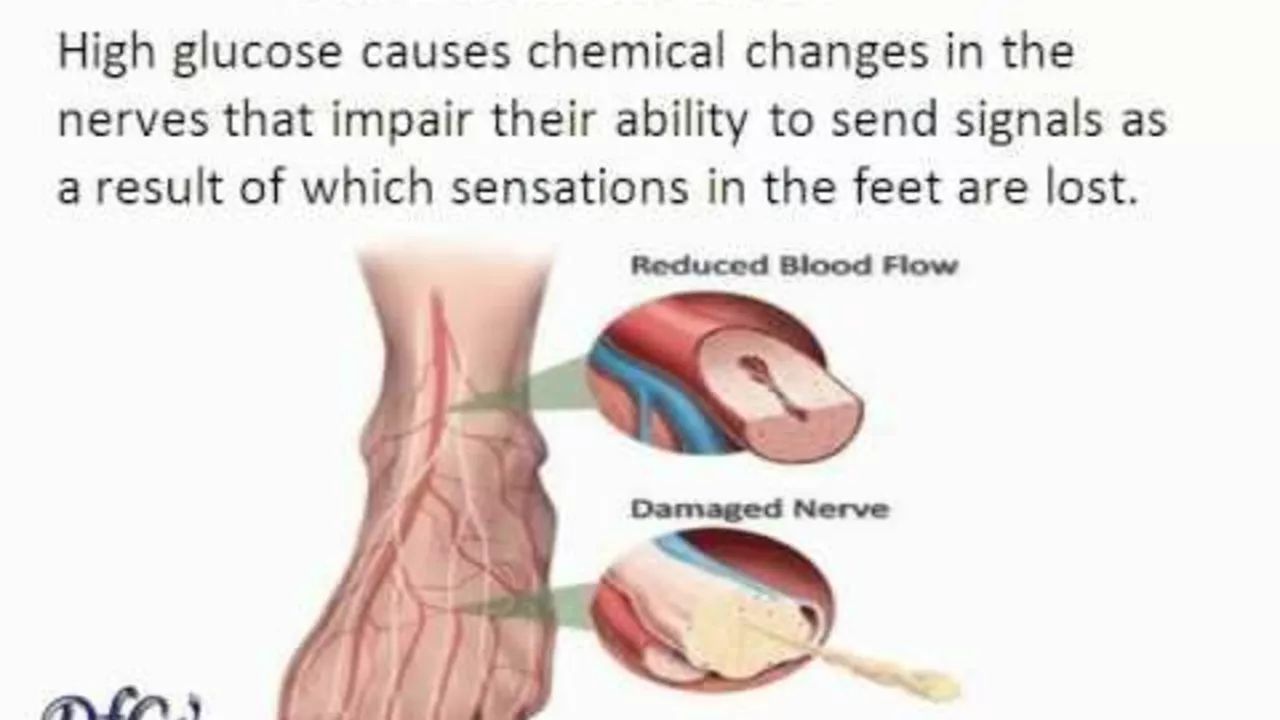Diabetes Complications: Signs, Risks, and How to Prevent Them
High blood sugar can quietly damage nerves, blood vessels, and organs long before you feel anything. If you have diabetes, knowing what to watch for and what to do now will cut your risk of serious problems down the road. This page gives clear, practical steps you can use today.
Common diabetes complications
Neuropathy (nerve damage) often starts with numbness, tingling or a burning feeling in your feet and hands. It can cause balance problems and make minor cuts turn into major infections.
Retinopathy affects the eyes. Blurry vision, dark spots or sudden vision changes are warning signs. Without treatment, retinopathy can lead to permanent vision loss.
Nephropathy (kidney damage) usually shows up as protein in the urine or rising creatinine on a blood test. Early stages are silent, so testing matters.
Cardiovascular disease is the leading cause of death in people with diabetes. High blood sugar plus high blood pressure or high cholesterol raises the risk of heart attack and stroke.
Foot problems come from a mix of poor circulation and neuropathy. A small blister can become an ulcer if pressure and infection aren’t treated promptly.
Acute complications include severe low blood sugar (hypoglycemia) and high blood sugar emergencies like diabetic ketoacidosis (DKA). These need fast action—don’t ignore dizziness, fainting, fast breathing, or confusion.
How to reduce your risk — practical steps
Control your blood sugar. Aim for the targets your doctor sets — many people work toward an A1c under 7%, but targets vary by age and health. Check your numbers regularly and keep a log.
Manage blood pressure and cholesterol. Many complications come from damaged blood vessels. Common goals in clinic are blood pressure under about 130/80 and lower LDL cholesterol, but ask your provider for the right targets for you.
Get routine tests: A1c every 3–6 months, annual dilated eye exam, yearly urine test for albumin, and blood tests for kidney function. Regular foot checks — daily at home and yearly by a provider — catch problems early.
Stick to medicines and use them properly. Skipping pills or changing doses without advice raises risk fast. If side effects worry you, talk to your prescriber; there are usually safe alternatives.
Move more, eat simply, and stop smoking. Aim for about 150 minutes of moderate activity per week, choose whole foods over processed ones, and get help quitting tobacco — smoking magnifies vascular damage.
Know red flags and act fast. Seek urgent care for chest pain, severe shortness of breath, sudden vision loss, uncontrolled vomiting, or a foot wound that’s red, warm, or draining pus. Early treatment saves limbs and lives.
Small daily habits add up. Check your feet, keep follow-up appointments, and ask questions at every visit. If you keep one simple goal — consistent monitoring and timely care — you dramatically lower the chance of major complications.






